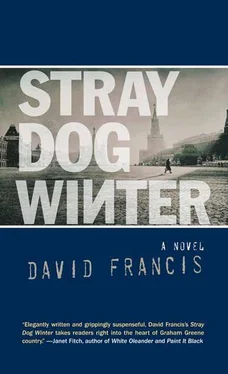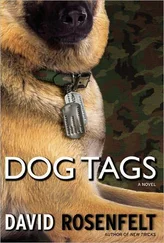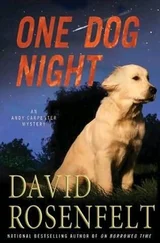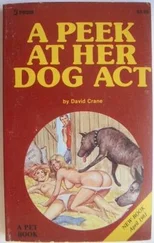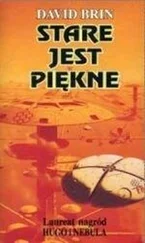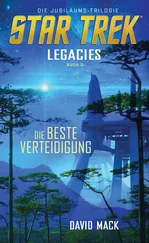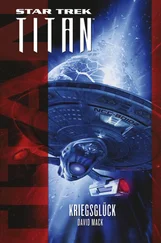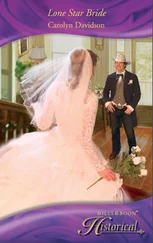As he opened the car door he heard the organ moan from inside the church as if it hadn’t been played since the revolution. Aurelio offered him a square of fruity fennel gum. We go for the party, he said. A gust of cold air and the chill returned to Darcy’s feet—he wasn’t sure if Aurelio meant the Communist Party or the wedding reception.
They walked briskly across the rain-slicked cement and up some steps into a stone-cold church lit only by lanterns and candles. Darcy smiled at the unlikeliness, attending a place of worship in a communist country when he never set foot inside one at home. The crowd was sparse, the men in the usual drab suits and the women in dark shapeless coats, and Darcy thought of Aurelio’s expression about when the ship went down.
The ceremony was already underway. Darcy pulled off his beanie and slipped into a pew beside Aurelio. Above them, the central cupola was boarded over; if there’d once been frescoes they’d been painted over too. Aurelio made a slight sign of the cross as he sat—a gay Catholic communist, maybe even Castro’s misbegotten son. A secret of his own.
As the organ played Darcy removed his gloves and rubbed his aching fingers. The pew was cold. Aurelio pressed his knee against Darcy’s and tipped his head to the bride near the pulpit; she wore white but no veil, a trail of silk and tulle floating down the steps behind her. My friend, said Aurelio. No bridesmaids or maids of honour. The groom stood a good head taller, slab-sided, squareshouldered, imperious in his military cap and uniform, a sword sheathed at his hip, curved like a narrow dragon’s tail.
The general. His boss. But Darcy saw little evidence of highranking people, considering his stature, no minister either or priest, just an official celebrant, short and stout in a green uniform, speaking in muffled, dissonant Russian with the mike fading in and out. Candelabras framed a vase of red carnations on a table behind him. He lit the candles as the couple turned to face the guests; Sofia was beautiful, big-mouthed and Roman-nosed, her broad teeth showing, her smile full-lipped. She nonchalantly spat on her fingers and flattened her hair.
Is she Cuban too? asked Darcy.
Aurelio nodded, quietly chewing. Of course, he said, a smile like that.
Darcy felt the general’s eyes rest on him with a kind of disdain—or was it Aurelio he was staring at? Darcy figured him in his sixties, Mussolini-faced and handsome in his military cap, snatching another glance at Darcy then glowering out beyond, as if on parade. Then the bride caught Aurelio’s eye and made a subtle face, both mocking and desperate. She says he’s like an animal, Aurelio whispered, making a claw with his fingers. He showed his unstained teeth. Darcy squinted to see the general’s well-set features, the gold stars on the pocket of his jacket.
They took my passport, he whispered.
I know, said Aurelio.
What do you mean?
He shrugged. I know many things, he said. It is my job.
A man crouched in the aisle taking photos and Darcy craned his neck in case it was his Pentax but it wasn’t. Aurelio began to translate the proceedings with the pressure of his knee, his breath near Darcy’s face. Are you taking me to be your legal wedded husband? he said as the bride took the general’s hand.
I hardly know you, said Darcy.
Aurelio turned to face him. You don’t know anything, he said.
Darcy and Fin double-dinked, wobbled along the edge of Old Mornington Road, giggling, her young breasts against his back. She was ditching hockey practice, Darcy wagging his woodworking class. As they freewheeled down the hill, Darcy felt young in his school shorts and socks. She was already thirteen, her hair cut shorter, her hockey skirt way above her knees, wearing eyeliner to school, studs in her ears despite the regulations. Darcy’d sneak into her dorm even at lunchtimes now, calling elly elly etdoo from out in the trees as a warning. Her posh country roommates loved the conspiracy. If the matron or monitor came down the path, Darcy’d be out the cantilevered window before a knock on the door—or the flick of the switch if it were already dark; he’d be weaving through the trees to his bike hidden among the blackberries. But he had her with him now, taking her down to his secret clearing.
What are we doing? she asked.
I just want to show you, he said. He buried the bike in a thicket of gorse and they made their way down the wallaby trail.
Uh-oh, she said, but she wasn’t afraid of scratching her legs. Show me what?
I dunno, he said. He wasn’t sure why he’d brought her; it was as if he wanted to share it with her somehow, but the clearing was enshrouded by sword grass, it didn’t look as pretty; the sun beat down on the grass and the wattle trees had withered back into themselves. A culvert had been dug and there was a pile of dirt. Others had been here, roadworks people. Darcy turned and caught Fin as she ran down the gully slope to him. She buried her face in his neck and they held each other, innocent as lovers. Is that all? she asked. He felt her nipples firming like pebbles against his own.
Darcy broke free and took off his school shirt, spread it on what was left of the soft paspalum. Fin lay down on it without being asked and she looked up at Darcy smiling, almost daring him. Darcy kneeled. He realised that wasn’t why he was here; he just wanted the missionary.
Fin took his hand and rubbed a finger in his palm. You don’t like girls that much, do you?
At first Darcy didn’t answer—it felt different being there with her. Darcy lay beside her. You’re my sister, he said.
She raised her head up on her elbow and looked at him. Her fair hair with its tinge of red, her eyes their pale moss green. I’m still a girl, she said.
Darcy closed his eyes and remembered the bittersweet need in the missionary’s eyes, how he whimpered and slumped and Darcy breathed into sweat that tasted salty like tears. The missionary wiping his butter from Darcy’s belly with a pale green hanky, then he didn’t look back as he climbed the slope through the trees towards the road. No Latter-day church was built on Two Bays Road.
Darcy stared up at the blinding white sun.
Early 1974
Darcy noticed a burgundy Monaro parked near the gate on Baden Powell Drive. He went down to investigate. It was Fin, in a bikini, her bare feet up on the seat, next to a guy in Wayfarer sunglasses and greasy hair, a six-pack of Victoria Bitter between them. He slouched against the ribbed bucket seat with a smoke in his hand, legs splayed, worn holes in the knees of his jeans. Darcy saw the bodyboards in the back seat. Fin hugged her legs. Wanna come down to Flinders? she asked.
I don’t have my bathers, said Darcy.
Don’t worry, she said, Jostler knows a secret beach. A hand reached through the open window, past Fin, and shook
Darcy’s firmly. Darcy looked in and met the sunglasses, saw an ear pierced with a glinting silver star. This is Darcy, said Fin, but the boy just nodded.
Darcy got in and the car smelled of cigarettes and marijuana even with the windows open. As they drove, Darcy felt like a dog, the hot air on his face, happy, as they wound down Two Bays Road where the church never was. The view of the Mornington Peninsula sat low and hazy in the sun. Darcy imagined what it would be like just to get away forever. Fin, lying with the back of her head in this older boy’s lap as he drove. He must have been at least eighteen, smoking a joint, one hand on the wheel. He passed it back for Darcy and Darcy took a drag and was spluttering, the smoke unpleasant in his throat. He waited for something to change, but all he felt was dizzy.
Читать дальше
